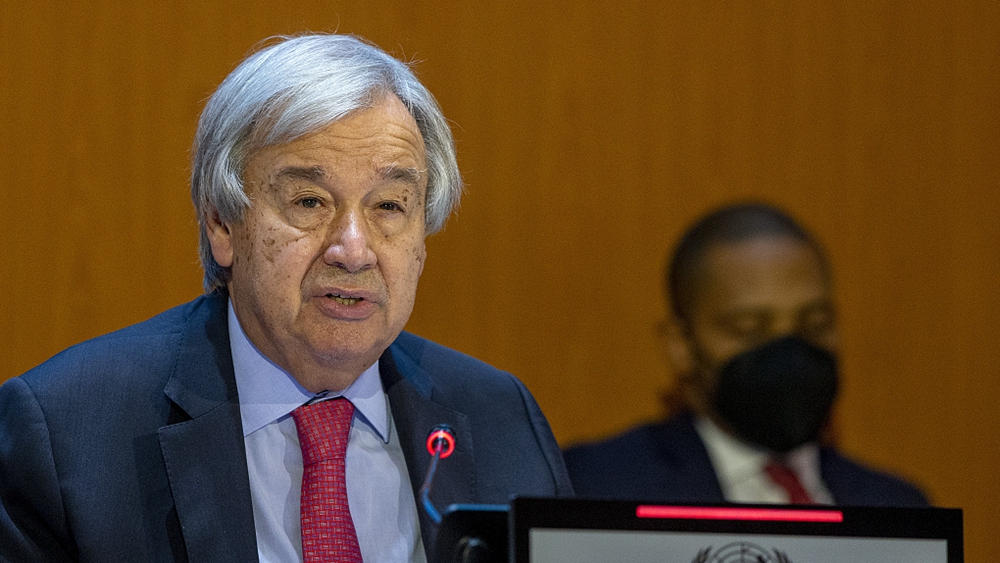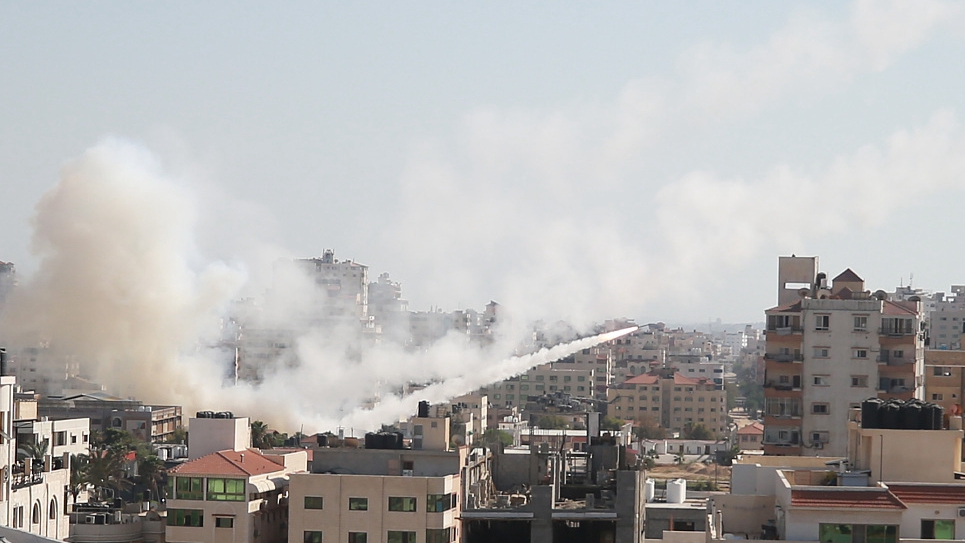
UN Secretary-General Antonio Guterres addresses his statement during the High-Level Ministerial Event on the Humanitarian Situation in Afghanistan at the European headquarters of the United Nation, in Geneva, Switzerland, September 13, 2021. (Phto: CFP)
Urban conflict affects more than 50 million people, United Nations Secretary-General Antonio Guterres told the Security Council on Tuesday.
Yet, he noted that when explosive weapons are used in populated areas, up to 90 percent of those killed and injured are not involved in initiating the violence.
"Civilians can suffer devastating harm both in the immediate aftermath and in the long-term," the UN chief said.
The majority of victims face lifelong disabilities and severe psychological trauma, he said. In addition, the infrastructure for water, electricity, and sanitation is often damaged, and healthcare services are severely disrupted.
Pointing to scores of schools and healthcare facilities damaged during fighting between Israel and Hamas militants in Gaza last year, the UN chief recalled that nearly 800,000 people were left without access to piped water.
Using heavy explosive weapons in populated areas disrupted every system and resource in Yemen, according to a study conducted in 2020.
"From Afghanistan to Libya, Syria, Yemen and beyond, the risk of harm to civilians, rises when combatants move among them and put military facilities and equipment near civilian infrastructure," the UN chief said.
The consequences of this type of conflict go far beyond its more immediate impact, putting people at risk of sieges and blockades, which have had a horrific impact on civilians in growing urban areas, up to and including starvation.

Rockets are being fired from Gaza targeting Israeli cities in response to Israeli airstrikes on the Gaza Strip, May 12, 2021. (Photo: CFP)
"Urban warfare forces millions of people from their homes, contributing to record numbers of refugees and internally displaced people," Guterres said.
Four years after the destruction of 80 percent of housing in Mosul, Iraq, for example, an estimated 300,000 people are still displaced.
Warfare in cities also creates millions of tons of debris that poses risks to both the environment and people's health. And unexploded ordnance makes it too dangerous for people to return home.
On top of that, mass destruction of buildings sets development back by decades, undermining progress towards the Sustainable Development Goals.
Guterres told the Security Council that "the frightening human cost of waging war in cities is not inevitable; it is a choice."
He stated that "accountability for serious violations is essential" and argued that member states must demonstrate the political will to investigate and prosecute alleged war crimes to the maximum extent.
The secretary-general explained that parties to a conflict have options when they wage war.
"They should adapt their choice of weapons and tactics when they wage war in cities, recognizing that they cannot fight in populated areas the way they would in open battlefields," Guterres said, urging member states to commit themselves to avoiding the use of wide-area explosive weapons in populated areas.


